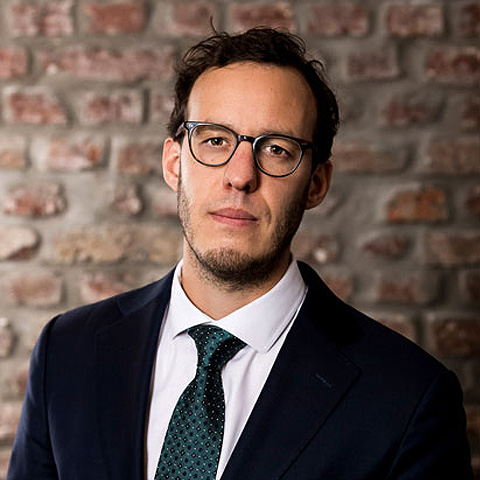Advocate General Villalón's line of reasoning with regard to the first question referred by the national court can be summarized as follows.
Firstly, he claims that the extension of freedom to provide services to include service
recipients by means of secondary legislation was a controversial issue until the Court's decision in Luisi/Carbone, so as to demonstrate that the Contracting Parties could not have a clear intention with regard to the scope of the freedom to provide services during the conclusion of the Additional Protocol.
Secondly, he argues that the extension of freedom to provide services to include service recipients, without specifying whether that extension took place by means of secondary legislation or case-law, constitutes an initial step towards the establishment of free movement for EU citizens, so as to transpose the reasoning of the Court in Ziebell to Article 41(1) of the Additional Protocol, thereby excluding Turkish service recipients from ist scope.
Lastly, he refers to the past practices of certain Member States and Turkey, which have breached Article 41(1) of the Additional Protocol, to support his reasoning.
These arguments will be assessed in turn below.
1. To claim that the situation of service recipients was controversial until Luisi/Carbone amounts to questioning the clear will of the Council first stated in Directive 64/220/EEC and again -nine years later- in Directive 73/148/EEC. Advocate General Trabucchi made an attempt in this direction in his opinion in Watson/Belmann (ECR, 1976, at p. 1204); however his views were implicitly rejected by the Court as it referred to 'persons ... receiving services' without any reservation in paragraph 15 of the judgment.
The scope of the notion of freedom to provide services had already been clarified as early as 1964 with the inclusion of service recipients by the secondary legislation (Directive 64/220/EEC). In doing this, the Council did not consider service recipients a new category of persons, and consequently, did not have recourse to a different legal basis other than Article 63 of the EEC Treaty in respect of services for adopting this directive (and also Directive 73/148/EEC). Indeed, when it was decided to extend the scope of free movement to new categories of persons (persons with independent means, retired persons and students) in 1990, the Council had recourse to Article 235 of the EEC Treaty as the legal basis to adopt the Directives 90/364/EEC, 90/365/EEC and 90/366/EEC (replaced by 93/96/EEC, which was adopted on the basis of Article 7 of the EEC Treaty). No action was brought for the annulment of Directive 64/220/EEC or Directive 73/148/EEC on ground of illegality during the period they remained in force.
In Luisi/Carbone, the Court, like Advocate General Mancini, had no difficulty in establishing, on the basis of relevant secondary legislation (Directives 73/148/EEC and 64/221/EEC), that freedom to provide services covered also service recipients. Had the Court had an earlier opportunity to give a preliminary ruling on this matter, its interpretation would have been most probably the same.
Advocate General Villalón's preference to refer to Advocate General Trabucchi's views instead of those of Advocate General Mancini (whose views were largely followed by the Court) is intriguing, since in 1976 (Watson/Belmann) and in 1984 (Luisi/Carbone) the relevant Community legislation in force was the same.
2. To claim that the extension of freedom to provide services to include service recipients constitutes an initial step towards the establishment of free movement for EU citizens is problematic.
It is difficult to conceive in the first place why freedom to receive services is singled out and treated differently from the other freedoms of movement for economically active persons. If these freedoms have played an important role in the establishment of free movement for EU citizens, as indeed they have, on the basis of objective criteria, one of these cannot take priority over others. Moreover, these freedoms cannot be associated with EU citizenship so as to deprive an individual of the rights which he previously had as an economically active person.
Freedom to provide services is part of the economic freedoms and in Luisi/Carbone the Court considered the freedom to receive services as 'necessary corollary' of the freedom to provide services, which fulfils the objective of 'liberalising all gainful activity not covered by the free movement of goods, persons and capital'. The attention should be focused on the words 'all gainful activity'. Service recipients, like service providers, are persons within the realm of 'economic' freedoms. They are persons who wish to receive, as confirmed a contrario by Advocate General Villalón in point 79 of his opinion, 'specified services' which are not marginal and ancillary. They cannot be classified simply as 'everyone'. If that were the case, there would be no need to issue Directive 2004/38/EC in order to accord unconditional residence right to EU citizens for up to three months in another Member State.
Therefore, it is not possible to interpret the concept of freedom to provide services under the Turkey-EU Association law differently from the same concept in Community/Union law.
3. To refer to the past practices of certain Member States and Turkey, which have breached Article 41(1) of the Additional Protocol, is also problematic.
Reading the intentions of the parties without sufficient indicia would not lead to a correct interpretation. What is at issue is simply an act of infringement by both parties to the Additional Protocol. Reciprocal infringement does not indicate a mutual implicit agreement on the interpretation of the relevant provision. It does not undermine the legal effect of Article 41(1) of the Additional Protocol in any way. Nationals of Belgium, the Netherlands and Turkey may certainly rely on the standstill clause before respective national courts.
Final Remarks
The obligation not to introduce new restrictions (standstill clause) contained in Article 41(1) of the Additional Protocol in respect of freedom to provide services was to start on 1 January 1973 for the then Member States and Turkey, and therefore, they must have had a clear idea about what they should not do as from that date with regard to freedom to provide services.
In the absence of evidence to the contrary, there is no reason to interpret the scope of the concept of 'freedom to provide services' referred to in Article 41(1) of the Additional Protocol differently from that of the same concept in Community law as it stood on the date of signature of the Additional Protocol.
The concept of freedom to provide services in the original EEC Treaty includes the freedom to receive services from the outset. What was done by means of secondary legislation in 1964 was simply a clarification of that concept, not an extension of it, as can be inferred from the legal basis (Art. 63, EEC Treaty) to which recourse had been made. Consequently, the concept of freedom to provide services cannot be treated as divisible, as confirmed by the Court of Justice with the words 'necessary corollary' in Luisi/Carbone.
To date, the Court of Justice has never called into question the identity of the concepts relating to free movement of persons in EEC/EC/EU-Turkey Association law with those in Community/Union law, by having regard to the objectives of the Association Agreement. The Court either implicitly accepted the identity of the concepts (e.g. 'right of establishment' in Savas, 'freedom to provide services' in Abatay) or made reference to the interpretation of the same concept (e.g. the concept of 'worker' in Birden) under Community/Union law.
Since it is shown that the concept of freedom to provide services is indivisible from the outset, there is no reason to interpret it differently.
Lastly, had the Contracting Parties had a different view in relation to the scope of the concept of freedom to provide services, they would have reflected it in Article 41(1) of the Additional Protocol through insertion of necessary reservations.
Link to the legal analysis




